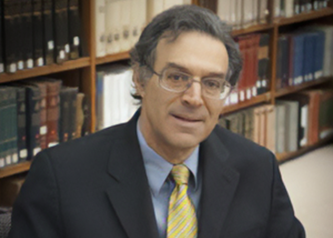

Professor of Modern Chinese History and The College, Department of History; Faculty Director, Yuen Campus in Hong Kong
Kenneth Pomeranz studies the influences of state, society, economy, and environment in late Imperial, twentieth, and twenty-first century China. He also examines the origins of the world economy and the impact of cultural and geographic differences on economic development. In addition to his work on China, Ken is interested in comparative and world history and has worked on state formation, imperialism, religion, gender, and other topics. Ken’s current projects include a history of Chinese political economy from the seventeenth century to the present; a book called Why Is China So Big? which tries to explain, from various perspectives, how and why contemporary China's huge land mass and population have wound up forming a single political unit; and a college level world history textbook that he and his co-author hope will also serve as an introduction to how history as a discipline works, and thereby encourage more methodologically self-conscious approaches to introductory teaching. He was also recently named the new faculty director of the Francis and Rose Yuen Campus in Hong Kong, effective September 1, 2021.
Q: Why is international collaboration important in your field?
A: History is all about understanding the changing contexts in which people act, and there are only so many of these local or national contexts that any one person can get a handle on; so getting the big picture will always require relying on the work of others. Besides, when we look closely, we often find that even what at first seems very local actually has a trans-national dimension, shaped by people, ideas, technologies, and so on that come from elsewhere, and can't be fully understood without knowing about those other places.
Q: How has your work with international partners been beneficial to you and your career, personally?
A: Bouncing ideas off colleagues from China, Europe, and elsewhere, who were often trained quite differently, are embedded in different local dialogues, and have access to different source materials, has always been an important source of intellectual stimulus for me. When I recently reviewed reactions to one of my books to write the preface for a 20th anniversary edition, I was struck again at how often scholars in China, Japan, Europe, and the US had seized on different parts of it, testing and building on its claims in different ways. My next project after the ones named above is a book that will be jointly written with colleagues from Japan, India, and the UK; it's still at an early stage, but we're finding that our meetings bring out ideas that I don't think any one of us would have come up with alone.